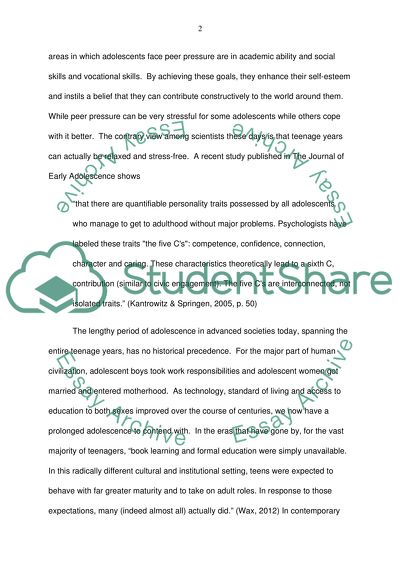Adolescence is a key developmental stage Essay Example | Topics and Well Written Essays - 750 words. Retrieved from https://studentshare.org/gender-sexual-studies/1469144-adolescence-is-a-key-developmental-stage
Adolescence Is a Key Developmental Stage Essay Example | Topics and Well Written Essays - 750 Words. https://studentshare.org/gender-sexual-studies/1469144-adolescence-is-a-key-developmental-stage.


